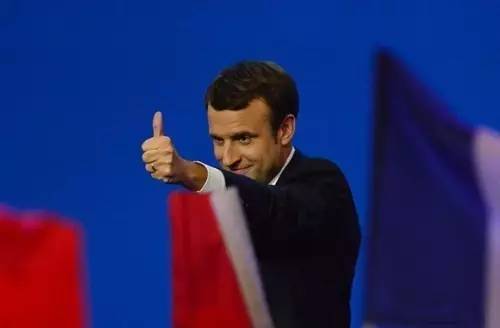HARI SREENIVASAN, PBS NEWSHOUR WEEKEND ANCHOR: Joining me now from Paris, with the Macron campaign is "NewsHour Weekend" special correspondent Malcolm Brabant.
Malcolm, how much of a victory was this for him as we heard from people who were at the polls here? Some of them said this was not a vote for him. It was a vote against the opposition.
MALCOLM BRABANT, NEWSHOUR WEEKEND SPECIAL CORRESPONDENT: Well, this is — if you look at the numbers, it looks like a really substantial victory, 65 percent against 35 percent. But when you actually look at the real numbers that actually voted for Macron, it's really not as big. So, he cannot really regard this as being a complete mandate, a popular mandate because there were so many people who abstained and overall, there were only about some 20 million French voters who actually voted for him, and that's less than a third of the country.
And so, many of the people who voted for him were not necessarily voting for him, they were voting tactically. What they wanted to do more than anything else was to prevent Marine Le Pen from getting into the Elysee Palace, and they managed to do that.

SREENIVASAN: All right. So, there is the joy of campaigning versus the difficulty of governing now.
BRABANT: Very much so. I mean, the president has the ability to appoint a prime minister and various other ministers. But what he needs to do is very much like the U.S. president. He needs to have the French parliament with him and French parliamentary elections are coming up in June. And the thing is, he doesn't actually have any kind of real, sort of party formation, any sort of party history. And he's somehow got to get around, about 270 people into parliament if he's to have his movement in the majority there.
And I think that what we are really going to see is not so the other parties doing their utmost to be able to stymie him. So, for the next five years, he may find it very difficult to get his policies through, especially if he gets a parliament that doesn't support him.
SREENIVASAN: One of the key issues between — that was very clear cut between these two candidates was their relationship or what they would like relationship be with to the E.U. Should the E.U. take some comfort and that Le Pen did not win, or should they still be concerned that Macron does not have that mandate yet?
BRABANT: You know what, any independent observer would say to the bureaucrats in Brussels is that, you know, there's an awful lot of people in Europe who are very unhappy with the way that the E.U. is being run and those are the people that need to be listened to. I mean, otherwise, the right wing nationalist movement in Europe is going to continue.
But what possibly happened here tonight is this movement is that this being — this movement, this wave which lots of people were hoping was going to sweep across Europe seems to have come to another dead halt here, although Marine Le Pen is saying that she is now the leader of a great opposition. Perhaps, that's what the destiny for the right wing in Europe, is that it's going to be opposition rather than government.
SREENIVASAN: All right. Malcolm Brabant, joining us from Paris tonight — thanks so much.
BRABANT: You're very welcome.













